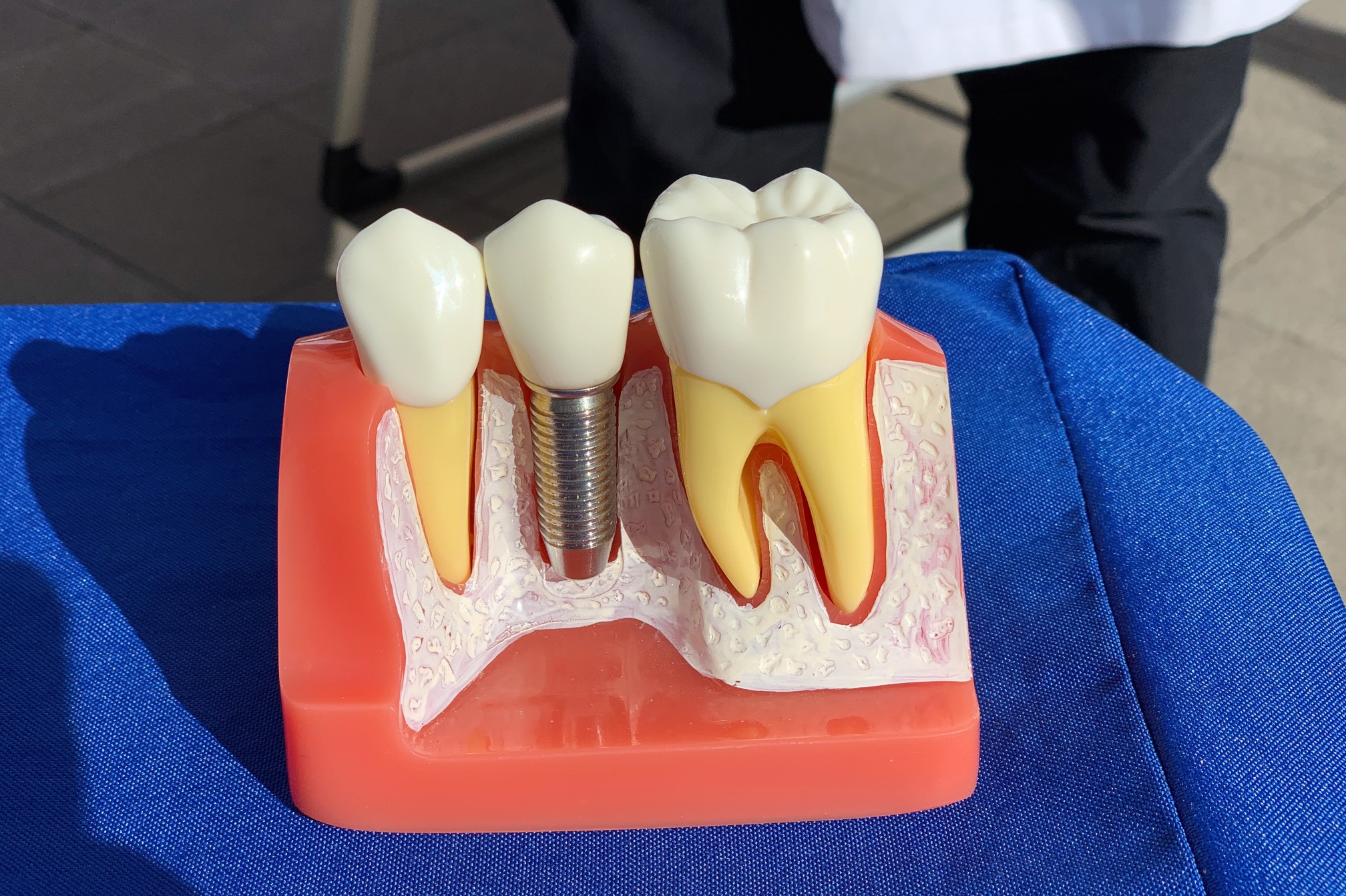Photo by @alinabuzunova on Twenty20.com
Titanium and zirconium are two materials used in the development of dental implants that give the possibility of significantly shortening the times of the procedures. These two materials have great advantages compared to the traditional materials used in the past. Let’s see below some characteristics of these valuable components:
Titanium implants
Since scientific evidence demonstrated its capabilities, titanium is the most widely used material for the development and design of dental implants.
Titanium is a metal with a color similar to steel, lighter than this, easily moldable, and extremely hard. But more important than its adaptability, to the object at hand, is its biocompatibility, which makes titanium one of the ideal materials for working in dental implantology.
When we talk about biocompatibility, we mean that titanium is a material that the body accepts more easily and rarely rejects it. For an implant to be successful, the implant materials are also an important part of the process.
When an implant “adapts” to the environment in which it has been implanted and fulfills the function for which it was designed – to support the dental prosthesis – we speak of osseointegration; mechanical union through which bone cells adhere to the implant surface, progressively consolidating their attachment to the maxillary or mandibular bone.
Today, more than 95% of commercial dental implants are developed with different titanium alloys.
Zirconium dental implants
The new zirconium ceramic implants allow us to solve some specific cases in which the patient presents a very fine periodontal bone. biotypes and/or tendency to lose gums. Another reason for the use of zirconia implants may be that we are dealing with patients who cannot accommodate metals in their bodies because they are frequently subjected to nuclear magnetic resonance imaging.
Zirconia is an extremely resistant, hard, and light ceramic material. In addition to these characteristics, its white color is very similar to that of teeth, which makes it an ideal material for dental prostheses, and all these variables offer us very considerable durability, efficacy and efficiency ratios as long as optimal conditions are maintained. Oral hygiene and implantation have been correct.
Another of its advantages is that it prevents the formation of bacterial plaque around it, resists acid corrosion well, and assimilates temperature changes well.
Unlike titanium, zirconia is consolidated by bio integration: instead of a mechanical bond, zirconia implants are bonded through a chemical bond between the bone surface and the implant surface. Some studies determine that bio integration is faster and more intense than osseointegration and that the consolidation of zircon implants can prevent future infections derived from the accumulation of subgingival bacteria.
Ask us for more information about dental implants for children and adults here at Unicare Dental Center.
For more information contact us.




